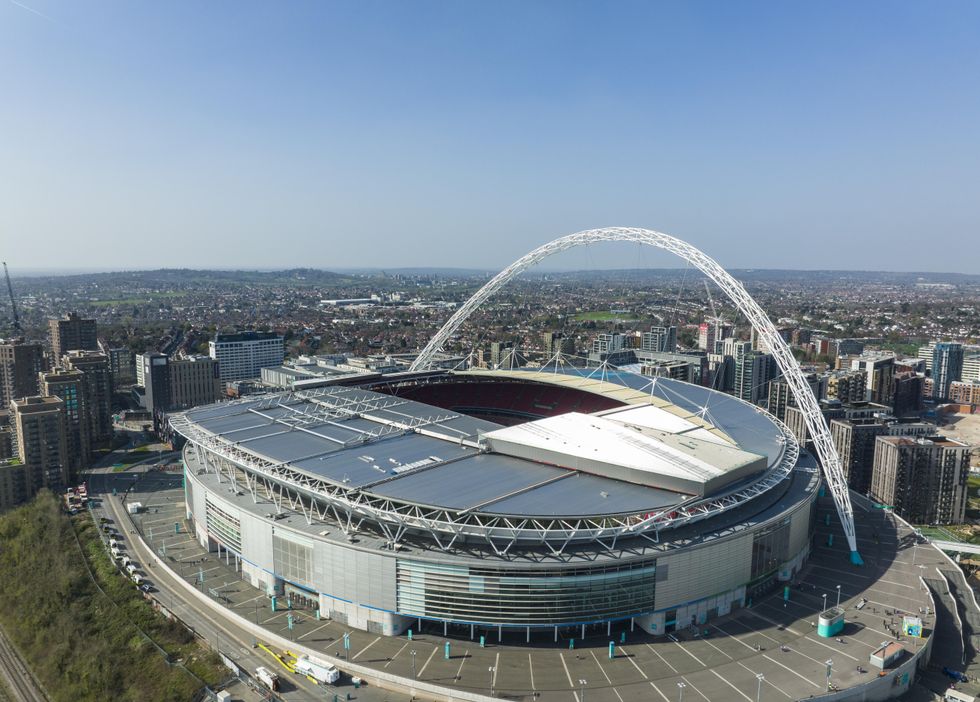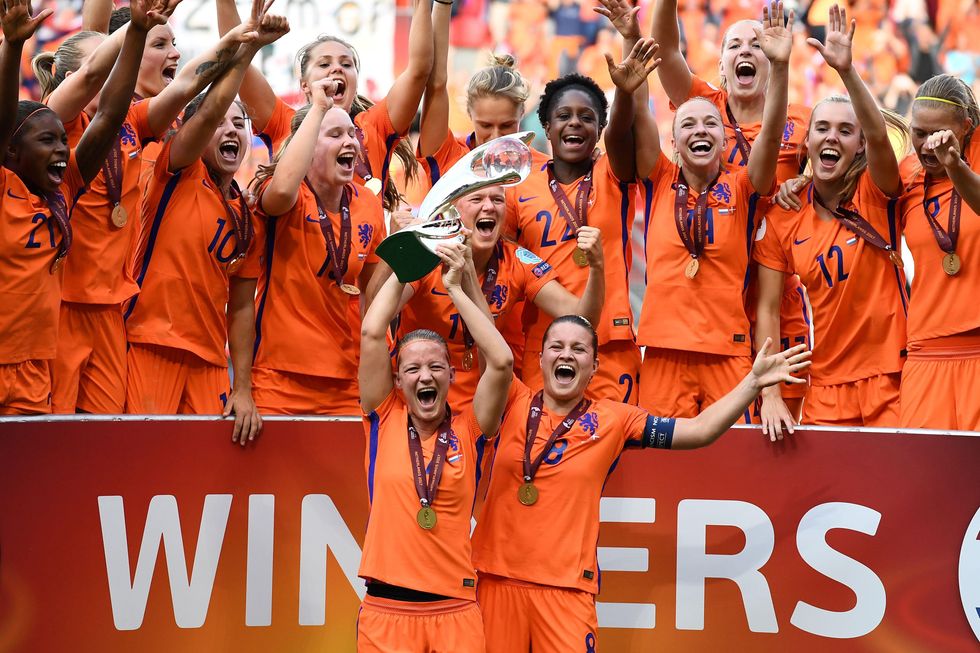The Women's Euro 2020 tournament is finally kicking off today.
After being postponed for a year because the men's Euros competition and the 2020 Olympic Games had to take place in 2021 due to the Covid-19 pandemic, the 16 countries taking part will compete against each other in a bid to become the European champions.
England is hosting the competition, with the first game taking place on July 6th as England's Lionesses take on Austria at Old Trafford, with the final set to happen at Wembley on July 31.
Sign up to our free Indy100 weekly newsletter
So the month of July is set to be jam-packed with women's football, and here is everything you need to know about the tournament.
Which countries are competing?
Altogether, there are 16 countries competing in the Women's Euro 2022 competition.
These countries are:
- England (hosts),
- Netherlands (defending champions),
- Northern Ireland
- France
- Germany
- Spain
- Belgium
- Italy
- Portugal
- Sweden
- Norway
- Denmark
- Switzerland
- Austria
- Iceland
- Finland
How does the competition work?
In the tournament, the are four groups with four teams in each and the two teams that are ranked the highest in their group go through to the quarter-finals and knock-out stages, and then the winner of each match from then on will move forward on to the final.
What is the qualification process like?
Hosts automatically qualify for the tournament, meaning this year England already qualified with the other 15 teams had to go through a tougher qualification process where there were group stages that began back in August 2019.
Those who succeeded in the group stage moved on to the play-offs that took place in April 2021.

Which venues are hosting matches?
As England is hosting Women's Euro 2022, there are 10 stadiums that will be used to hold the matches which include: Old Trafford, Bramall Lane, St Mary's, The Amex, Stadium MK, the Brentford Community Stadium, the New York Stadium, Leigh Sports Village and the Academy Stadium.
What is the history of Women's Euro 2022?
It was back in 1982 that the Women's Euros (originally named European Competition for Women's Football) was first established and two years later in 1984 that the first tournament took place.
Sweden were the first winners in a competition that took place in six stadiums across Europe, after they beat England on penalties in a two-legged final that took place at Luton Town's Kenilworth Road
Three years later, Norway hosted the competition where they also won after they defeated defending champions Sweden 2-1.
In the next few years, Germany reigned supreme winning in 1989, and 1991 and while Norway won in 1993, Germany returned to the top in 1995 and remained there as they dominated the tournament up until 2013.
This run came to an end at the next Women's Euros in 2017 when the hosts The Netherlands won the competition for the first time.

Which countries have previously won the tournament?
With eight European championships under their belt, Germany is historically the most successful national team in the Women's Euros, winning every final they've been in.
Meanwhile, Norway has won twice, with Sweden and the Netherlands winning once.
While England hasn't yet brought football home, they along with Italy and have previously reached the finals twice as Denmark also reached the final once (in 2017).
Where can I watch Women's Euro 2022?
If you want to catch England's Lionesses in action that UK viewers can watch Women's Euro 2022 on BBC - Live on BBC TV (One and Two), BBC Radio 5 Live, iPlayer and the BBC Sport website and app.
Have your say in our news democracy. Click the upvote icon at the top of the page to help raise this article through the indy100 rankings.














